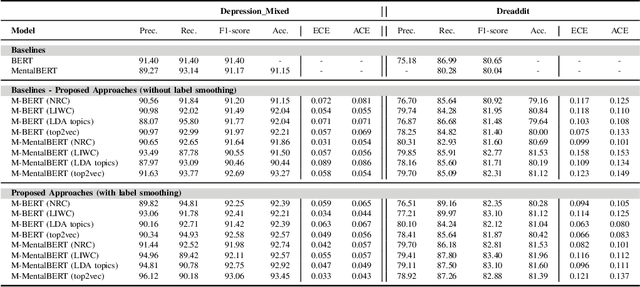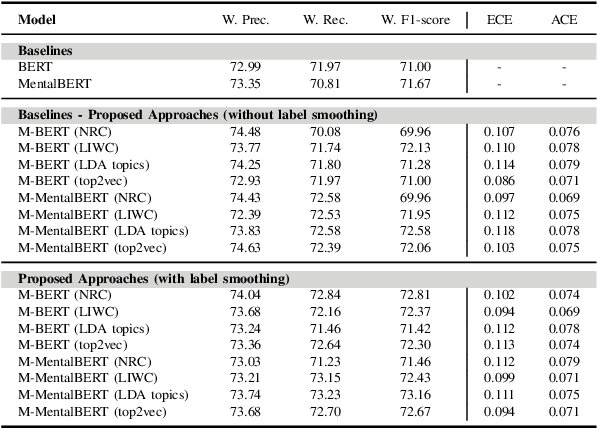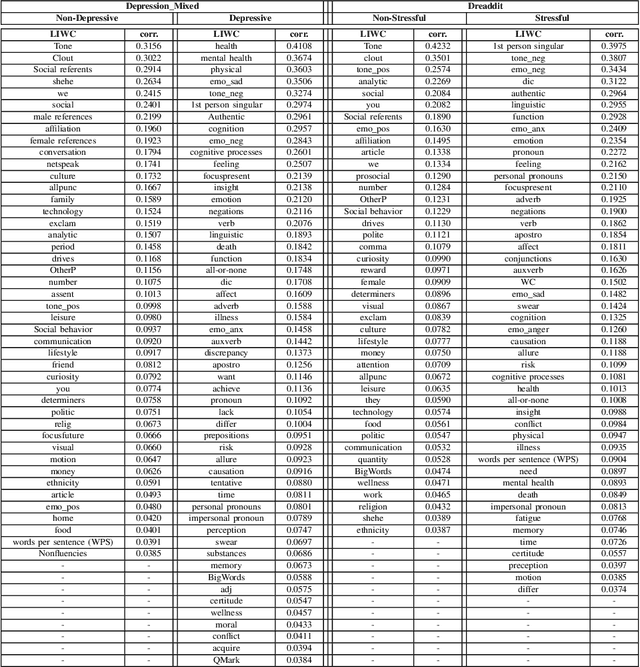Calibration of Transformer-based Models for Identifying Stress and Depression in Social Media
Paper and Code
May 26, 2023



In today's fast-paced world, the rates of stress and depression present a surge. Social media provide assistance for the early detection of mental health conditions. Existing methods mainly introduce feature extraction approaches and train shallow machine learning classifiers. Other researches use deep neural networks or transformers. Despite the fact that transformer-based models achieve noticeable improvements, they cannot often capture rich factual knowledge. Although there have been proposed a number of studies aiming to enhance the pretrained transformer-based models with extra information or additional modalities, no prior work has exploited these modifications for detecting stress and depression through social media. In addition, although the reliability of a machine learning model's confidence in its predictions is critical for high-risk applications, there is no prior work taken into consideration the model calibration. To resolve the above issues, we present the first study in the task of depression and stress detection in social media, which injects extra linguistic information in transformer-based models, namely BERT and MentalBERT. Specifically, the proposed approach employs a Multimodal Adaptation Gate for creating the combined embeddings, which are given as input to a BERT (or MentalBERT) model. For taking into account the model calibration, we apply label smoothing. We test our proposed approaches in three publicly available datasets and demonstrate that the integration of linguistic features into transformer-based models presents a surge in the performance. Also, the usage of label smoothing contributes to both the improvement of the model's performance and the calibration of the model. We finally perform a linguistic analysis of the posts and show differences in language between stressful and non-stressful texts, as well as depressive and non-depressive posts.
 Add to Chrome
Add to Chrome Add to Firefox
Add to Firefox Add to Edge
Add to Edge